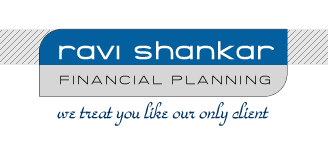|
 |
|
||||||||||||||||||||||||||||||||||||||||||||||||||||||||||||||||||||||||||||||
| Insurance
Life is full of surprises – good and bad! But there are some things in life over which you have little or no control, no matter how hard you work. Things like serious illness, injury, disablement and even death. As your family needs money to live on even after these events, there is something you ought to do for the sake of your family. That is securing an ability to continue to generate income when any of these unfortunate events occur. “Being ill or injured is difficult enough, without the financial pressure of not being able to earn an income.” When thinking about insurance, Australians often think about aspects of life that can be controlled or planned. Research shows that the “she’ll be alright” attitude of optimism often left Australians unprepared for the unexpected. We will not only help you increase your personal wealth but also help you protect yourself and your family. And this way we've helped you sustain the wealth building process irrespective of these events. How good is that! We understand that it is important that you have the right insurances in the right amounts and with tax savings too where possible. Having a comprehensive insurance coverage is the biggest asset you can ever have as it comes extremely handy at a time when your family needed most. Did you know that :
|
||||||||||||||||||||||||||||||||||||||||||||||||||||||||||||||||||||||||||||||||
|
The Dr. Michael Holt Story The Dr Michael Holt Story Dr Michael Holt was a young successful and dynamic Orthopaedic Surgeon in private practice with everything to live for and had a perfect life. On 16 February 2004, in a split second his life was ruined after he was a pedestrian struck by a car crossing the road. He was simply going about his business and lost concentration for just a moment. His beautiful life was irretrievably lost, and with his blindness, deafness and other injuries no-one was ever going to let him be a Surgeon again. He had to drag himself out the depths of depression and hopelessness and rebuild his life both physically and mentally but Dr Holt attributes his eventual success to the love of his family and financial security through adequate insurance. “I could have never recovered and got my old life back without the benefit of adequate insurance which in my case meant Income Protection and Trauma insurance.” After a 4 year battle to establish his credentials and ability Dr Holt was able to return to the life he once led in private and public Orthopaedic practice and continues to lead a very full life in Rugby coaching, Golf and Family. “My success in part is due to not having financial pressures to deal with in addition to the physical and psychological turmoil that can be a split second away from any of us when disaster strikes!” World famous heart surgeon Dr. Marius Barnard assisted his brother Dr. Christiaan Barnard in performing world’s first human to human heart transplant on 3 December 1967. Drawing from his experience of treating a young divorcee with 2 children for lung cancer, he set the stage for the birth of Critical Illness Insurance. His patient had to get back to work after the surgery to remove a lung, as she needed money to live. She died two years later. “Wouldn’t it have been better to have an insurance that pays upon diagnosis of a critical illness? Such insurance is really a marriage between medicine and financial protection. While a medical doctor is a patient’s physical doctor, the insurance is his financial doctor. If someone is ill the first person to go to is his/her physical doctor, but at that stage it is hoped that he/she has made provisions so that his financial health too is in place, as insurance is by definition money when one needed most.” Almost everyone knows of someone who has suffered a heart attack, stroke or someone who has been diagnosed with cancer. Statistics show that one in two men and one in three women will be diagnosed with a serious medical condition during their work life. “Due to medical advances, you have a greater chance of surviving a serious medical condition, but it is the financial stress that hinders recovery.” |
|
|||||||||||||||||||||||||||||||||||||||||||||||||||||||||||||||||||||||||||||||

